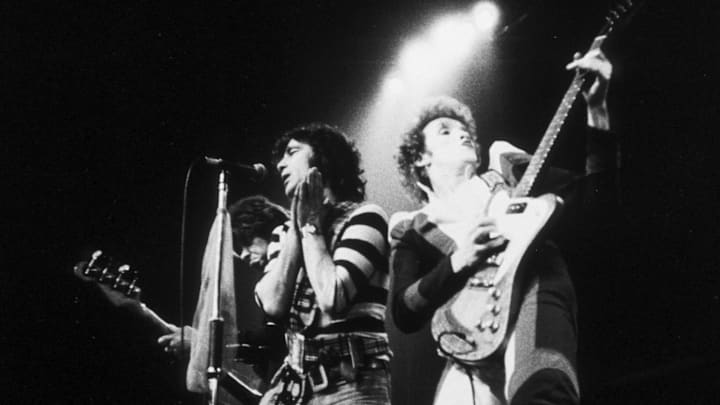David Bowie - February 7, 1972
You won't go far wrong with getting David Bowie on your program set. Bowie, of course, had several distinct phases and characters in his career. At the time this was recorded in February 1972 he was just two days away from launching his first Ziggy Stardust UK tour. He drew from his 1971 album Hunky Dory for three songs for the recording session. Of the three songs, “Five Years,” “Queen Bitch,” and “Oh You Pretty Things,” only the first two were broadcast on the original show which was screened the next day.
Bowie and the band were all tour-ready in their glam rock-style clothes for the session. Although recorded live there was the opportunity for a couple of takes, that was the case for “Queen Bitch.” Bowie wasn't keen on the first version and stopped the second take early, too, as he was still unhappy with it. Take three was perfect and the one broadcast.
It’s a standout Bowie glam rock song, with hints of “Suffragette City” in there. The song wasn't a single but was noted as a top track on the album. Bowie had written it as a tribute to the Velvet Underground. The live version from this OGWT session was included in his 2002 DVD Best Of Bowie.
Peter Frampton - October 26, 1976
In a program taken from a live concert, OGWT brought Peter Frampton back to UK TV screens in 1976. He was known for his previous work with The Herd and Humble Pie, but this was a chance to showcase his solo music. Frampton was riding high at the time, his live album Frampton Comes Alive had been released earlier that year and was a huge success.
That made him a great star to include on OGWT. A show was recorded at The Pavilion, Hemel Hempstead in October 1976 and shown shortly after. It was a 45-minute six-song special featuring top tracks from the hit album. It was a top performance from Frampton back in his homeland. To some extent, this was the reverse of the usual scenario where bands try to recreate album tracks live. In this case, Frampton had to show that the brilliant live performances on his record could be repeated on a stage. He did so superbly and earned even more interest in his album.
Frampton Comes Alive had been in the charts already but had dropped out of the UK top twenty at this point. The album found its way back into the top ten again after the show was broadcast. Word had spread and the show promoted the album and helped extend its chart success.
Continued on next page
